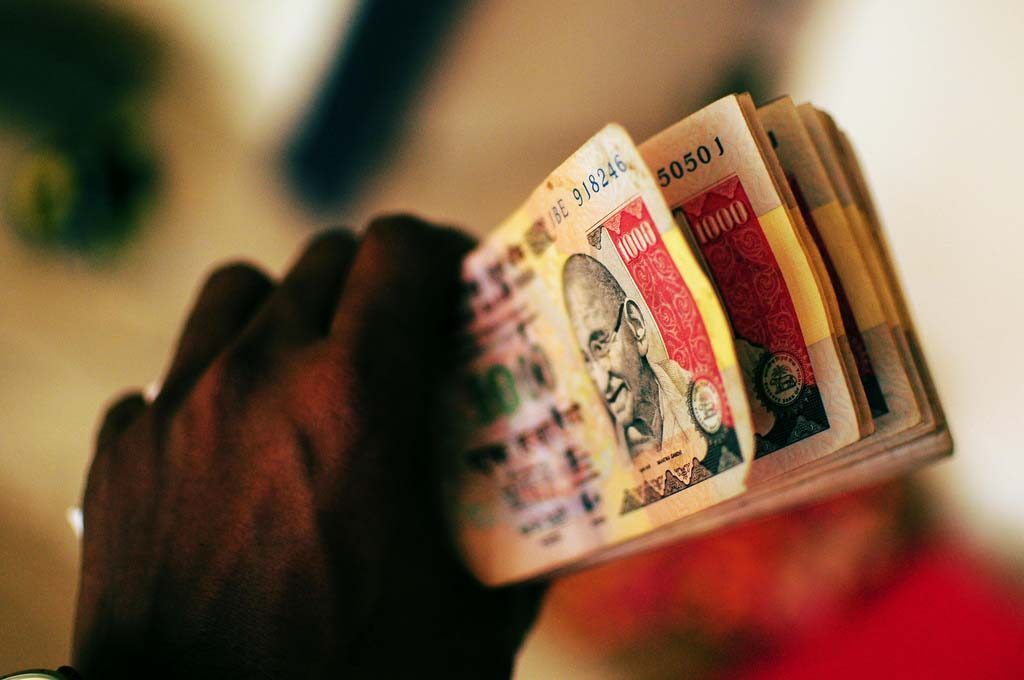
With reporting from Nada Badawi
In a surprise announcement, India’s Prime Minister has said that existing Rs500 (QR27) and Rs1,000 (QR55) currency notes will soon become “worthless pieces of paper.”
Effective immediately, the country’s highest-value banknotes can no longer be used for most transactions.
The move is part of an effort to fight corruption and terrorism, Narendra Modi said.
All details on the announcements made today can be found here. https://t.co/UoiCjCyupV #IndiaFightsCorruption pic.twitter.com/WKpgsdTcjg
— Narendra Modi (@narendramodi) November 8, 2016
In a speech last night, he explained:
“The five hundred and thousand rupee notes hoarded by anti-national and anti-social elements will become just worthless pieces of paper. The rights and the interests of honest, hard-working people will be fully protected.”
Indians have been given 50 days to deposit these notes at qualified banks and post offices.
However, these institutions as well as ATMS in India will be closed today to give them time to prepare for the transition.
Redesigned Rs500 and brand-new Rs2,000 notes will be introduced from tomorrow, Nov. 10. For now, Rs100 (QR5) notes will be the highest denomination of currency in use.
Impact in Qatar
The announcement could put some of Qatar’s 700,000 Indians in a bind, if they have a lot of cash at home.
Speaking to Doha News, several exchange houses in Qatar said they will stop accepting the old Rs500 and Rs1,000 notes starting today.

They will also not be able to help customers trade in the old currency for new bills. This must be done only in India, a representative from Al Zaman Exchange WLL said.
For expats concerned about not being able to deposit their cash in an Indian bank by Dec. 30, another option is to apply for an extension. This would give them until March 31, 2017.
Additionally, Modi said that arriving and departing passengers who have Rs500 and Rs1,000 of Rs5,000 or less can exchange them at Indian airports for new notes.
Short notice
Many financial experts have hailed Modi’s decision, saying it would help weed out tax evaders with undisclosed assets.
Speaking to the Financial Times, Tushar Arora, an economist at HDFC Bank, said, “Given the extent of black money we have in this country, a stringent measure was needed.”
He added, “It’s good that the government has taken people by surprise. If they’d given warning, people would have found loopholes.”

However, earlier this year, India’s central bank estimated that 86 percent of the value of all rupee bills in circulation was in 500- and 1,000-rupee notes.
Thus, some chaos is expected in the short term, as people scramble to figure out how to pay for taxis, groceries and other items.
“It’s going to be very inconvenient, because everybody uses these notes,” Sujan Hajra, chief economist at Anand Rathi Securities in Mumbai told the Wall Street Journal.
But given the amount of counterfeit cash in India, he added, “it’s a very good move.”
Reaction
Many in Qatar also hailed the decision, calling it bold and necessary.
@dohanews bold decision, we hope it works as intended
— Aijaz Khan (@AIJAZAK) November 8, 2016
@dohanews @ndtv In the short term property prices would reduce – good time to be in the market. Not many keep physical cash in Qatar
— رويستون (@Lasradoroyston) November 8, 2016
Great & bold move to curb black/counterfeit money. Expect short term inconvenience but long term gains.
No grt impact for NRIs.@dohanews— a.$huk£a (@Aks1008) November 8, 2016
But others were less enthusiastic about the decision.
@dohanews 500 and 1000 notes in india are as common as 10,50,100 and 500 QAR here.Common ppls will suffer like hell. #ModiTakeBackDecision
— Syed khusroo pasha (@KhusrooPasha) November 8, 2016
@dohanews surprised at Modi, the businessman’s PM, making this decision. There is no business without black money in India. @ndtv
— Roohi Dawood Khatri (@roohikhatri) November 8, 2016
How will this change affect you? Thoughts?







